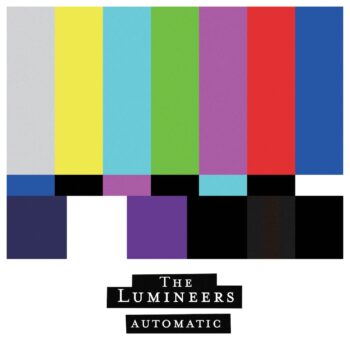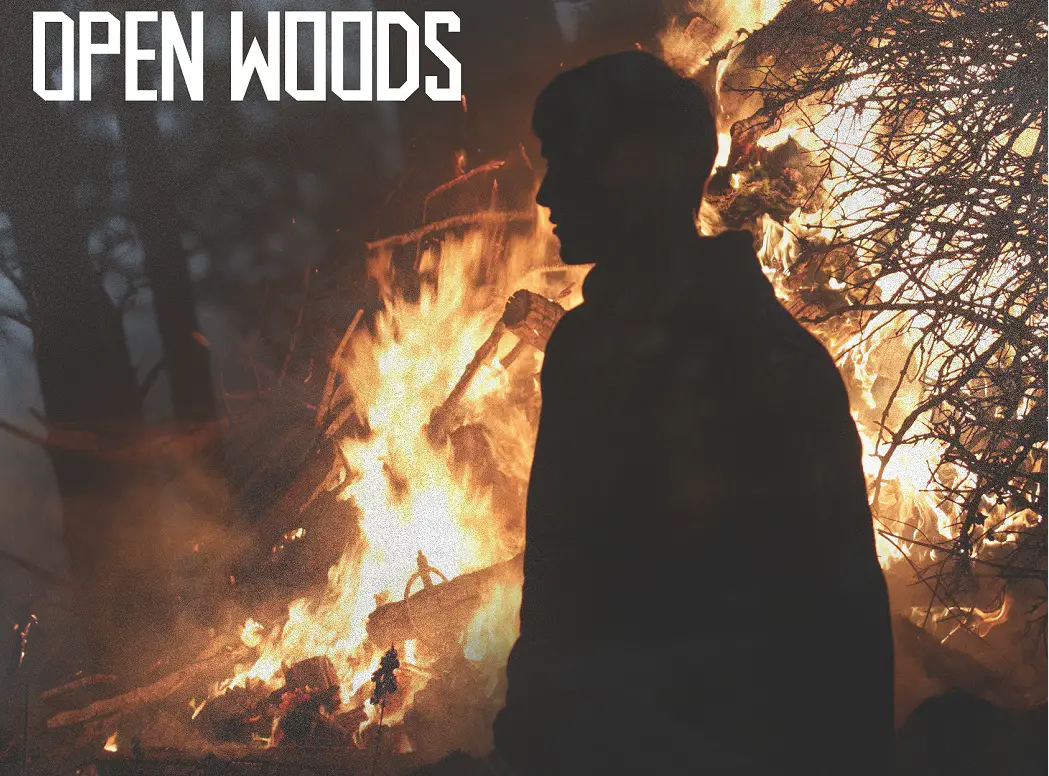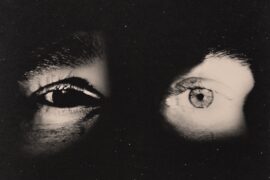Atwood Magazine sits down with Jeremiah Fraites of The Lumineers to discuss their fifth studio album ‘Automatic,’ what twenty years of success as a band looks like, and the alchemy that is creating a song.
Stream: ‘Automatic’ – The Lumineers
You don’t see many bands make it to ten years, let alone twenty.
The Lumineers have been able to do this, and successfully at that, might I add. It’s clear, after talking to Jeremiah Fraites, why The Lumineers have been able to sustain success through the trials and tribulations of what any relationship would have over a 20 year timeframe: It’s for the absolute love and passion these two hold for the music they create.
We’ve spoken with my fair share of musicians in the past decade at Atwood Magazine, so we don’t say what’s to come lightly. Listening to Jeremiah Fraites speak about music was one of the most magical 30+ minutes we have ever been a part of. There is something intangible about being in the orbit of someone with such a gift, and such passion for that gift. It became abundantly clear why The Lumineers have seen the success they have had, and why that success is here to stay. They will always make music that moves them, and because of that, it moves the rest of us.

Below, Atwood Magazine sits down with Jeremiah Fraites to talk about the band’s fifth studio album Automatic, how it was created, and the magical moments Fraites felt throughout the process. He passionately weaves us through the creative process and themes behind their record, while also diving into the band’s long-standing personal and creative partnership, the evolution of their sound, and the desire to challenge their fanbase while staying true to their artistic vision.
Automatic is out everywhere now via Dualtone Music Group, and The Lumineers are heading on a world tour in April. Don’t miss the magic!
— —
:: stream/purchase Automatic here ::
:: connect with The Lumineers here ::
— —

A CONVERSATION WITH THE LUMINEERS

Atwood Magazine: Jeremiah, thanks so much for taking the time. Let’s dive in! You guys are so good at creating full concept albums. With Automatic, there are many strong themes throughout, like “living for the love of yesterday” or “you’re all that I got.” I love how these themes are recurring, and I love the feeling this whole album exudes. Tell me about creating it and if you had these ideas going in.
Jeremiah Fraites: I think songwriting is sort of this weird muse, this weird alchemy where things happen. It’s like a mixture between the intentional and the unintentional. And I think that sometimes lyrics just pour out of you. I mean, this year, 2025 marks the 20th anniversary of me and Wes’ personal and band relationship, and it’s a big number, big anniversary, so to speak. I think that being in a band for 20 years comes a lot of highs and also comes a lot of lows and a lot of interrelationship type stuff.
With “You’re All I Got” a lyric that poured out of me was, “Would you sell me out the first chance you get? You’re all I got.” It was sort of the paranoid, almost anxious side of being in a relationship with someone, but then also this release of “You’re All I Got,” it’s still an immense amount of love and responsibility that you each have sort of being two peas in a pod or being connect tied at the hip literally. I think it’s a big responsibility and a big pressure and a big, when it’s good, it’s great.
And when problems arise, it can be really difficult to deal with because you do so much. I mean, you travel the world together and you’re in this band and you’re writing music and just you’re around each other all the time and it’s a lot to deal with. I think a lot of bands break up because of that reason. Maybe not because the music starts to go downhill, but because the off stage stuff can get too difficult. And I think that with me and him, we’ve always found ways to get through to the other side and really continue to flourish. And I think that going through all that stuff too, it really made this album lush with lyrical things and really beautiful.
It's rare to see that. You guys both continue to choose each other and make it work. I'm making it sound like a marriage, but isn't that what it is>
Jeremiah Fraites: Yeah – it is a platonic marriage. I think I’ve spent more time with Wes than my own wife and probably vice versa for him. So it’s a lot. I mean, even when we grew up in Ramsey, New Jersey when we started the band and then we lived in Denver together for almost 10 years, and at one point we lived in the same house, we worked at the same Japanese restaurant and then we worked on the band. It was a lot. It was this unsustainable level of psychotic, but I think you sort of need to have that at some point when you’re starting a band or a business.
And you've figured out how to give longevity to it, which is amazing, especially for us. All of us fans, we're happy about it. Let’s talk about “Asshole” - I love this song so much. The lyrics are amazing. Tell me about writing this one.
Jeremiah Fraites: I’ve heard Wes talk about the lyrics of this one where said that he’s had a lot of people in his life that actually kind of said to him later like, “Hey, when I met you, I kind of thought you were an asshole, but now you’re an all right guy.” It’s basically the sentiment he’s sort of expressed, and it’s actually a song that could have been on album four, Brightside. It was a working chorus we had for the song “WHERE WE ARE.” I’m really glad that we saved it.
“Asshole” has its own alchemy from “WHERE WE ARE.” It starts with the piano. This piano was one of the first ideas I wrote for the album. It was this really busy melody where I couldn’t figure out how to write any lyrics, but I really loved the melody. When we figured out how to make it into this song everything went from there. We had the chorus and we really wanted it to feel like something stopped the earth. We decided to make everything kind of disappears into strings after the chorus. We have all these old samples of real strings and real people that were recorded so long ago that for all intents and purposes, all the people that perform those samples have probably passed away, which has this sort of eerie, but we did this and as soon as we hit play, we were like, oh, wow, that’s such a cool chorus. Everything gets stripped away, but then you have these evocative lyrics. For me, I almost thought of it as a Lana Del Rey production where you have these really interesting almost lo-fi string sounds and then this great melody.
The second chorus is kind of an extension of the first chorus, but we wanted to make it bigger and bigger so we added the counter melody where that lyric “living for the love of yesterday” comes in. We love the usage of background vocals where it’s sort of these counter melodies to take a verse over the edge. There was a song on BRIGHTSIDE called “AM Radio” where we were working with this guy named James Felice, who’s in a band that we love called the Felice Brothers. We make all the records out in the Catskills of Woodstock, New York, and James lives out that way. He has a knack for really great background vocals, a way to layer and stack and have these ideas coming in juxtapose to one another.
We wouldn’t have done that in our first album. It’s been a cool natural progression of our music, through the usage of background vocals. It’s a really clever way to up the ante and take the chorus from a 9 to a 10. You just need to have a really secondary, strong melody to latch onto. And that was a really fun song to work on in the studio. The weirdest thing about working on music is that you can try the same notes, literally the same notes on a guitar, on a piano, on an organ, make it out of strings, but then the tone or the right instrument, the color of that, those notes changes everything. And there’s always this alchemy of a track I feel like is very picky.
We had a lot of fun making this album. The production was really, I think quite different from previous Lumineers records. Even the way we were drumming. I was drumming. It was a little bit more unhinged and just, it’s funny, if you were to listen to the first Lumineers record, I think it has three crash symbols in the whole album. Really. This album has just a lot of drumming. Especially my favorite song at the moment, “So Long,” which finishes the record.
“So Long” is so good. I wanted to ask about that one. Did you always know it was the closer?
Jeremiah Fraites: We actually did. We liked that is would be like “so long” kind of like “we’re out.” We thought it was kind of a cheeky little clever way to end the record. We also did that one as a live take, which was really cool. I was on drums, Wes was playing guitar and singing at the same time, and then Byron was playing bass. It’s sort of a novel idea to do it that way in 2025, but that’s how real bands used to do it.
“So Long” is incredibly cinematic, and there’s a magic to that recording. Now I know why! It’s also cool to hear you talk about listening to what the track needs and then going with it - I feel like I could listen to a song a hundred times, and on the hundredth time, I'm like, “Oh, what was that that I just heard?”
Jeremiah Fraites: Yeah, there’s really such an alchemy. My favorite band is Radiohead, and I really feel like, I mean, still to this day, I could hear a song like 10,000 times and with headphones I’m discovering a new thing. And with listening to what the song needs – for example if we went in and said we want a rock song – we would’ve fallen flat on our face. “So Long” happened organically with no expectations, and it just happened to be a rock song.
With “So Long” the album was pretty much done. We had “Automatic,” the piano ballad, and then we had guitar heavy songs and drum heavy songs. We kind of started to see the whole album like a polaroid developing before our eyes. With “So Long” we’re like, yeah, this album could really use almost like that song “Bittersweet Symphony” cinematic vibe.
Yes, The Verve.
Jeremiah Fraites: Yes – just easy, just a driving something simple and don’t overthink it. And it wasn’t like, let’s make a rock song.
I think when fans hear this album, I think inevitably a handful of fans will get turned off on the first few listens because it is a departure from our sound. But I think that my favorite artists sort of challenged me, Radiohead comes to mind, but a lot of bands did that Tom Petty, or even Metallica. I love that quote from Rick Rubin, a very profound prolific producer where he said, if you want to serve the artist, ignore the audience. And I really love that idea. I think that when Wes and I are writing music, we’re sort of in our own little cubicle. We’re not polling 1000 Lumineers fans for what they want to hear.
But that’s what makes you guys so good. I think it’s what gives you longevity.
Jeremiah Fraites: Thank you. Yeah, I mean, when we’re in the studio getting tears in our eyes or getting goosebumps you know you’ve done something good. I mean, that actually happened with “Asshole.” There were these amazing backup singers that came in just to sing the chorus and the final big gang vocals on that song, and they were in the live room singing, and I was in the control room watching and listening, and it was so crazy. This was one of my favorite stories from the album, from making this record. I was watching them sing our song, and it was the refrain that goes on for probably a minute. The music keeps getting bigger and bigger around them. At this moment, I got goosebumps. I thought about my children and how lucky I am to be a dad and to have this band. All these things at once just flooded me with emotion. And I literally started to get tears in my eyes, and I swear I looked to my right at the same moment, Simon Felice, one of the producers was completely crying, and he was like, dude, I just had this same thought. Wow. It was just this crazy hive mind emotional, okay, this song is going to do something.

I love that so much. We have to talk about “Automatic,” the album’s title track. I love the lyrics. Tell me about this one.
Jeremiah Fraites: With this one – a lot of the lyrics seeping out are about Wes and I’s 20 years together. There is also I think a big element in this one of just living in 2025. It’s this sort of modern era where things at times can feel quite automatic, like ads cater to your shopping habits, living bombarded with social media and news all the time.
It’s almost like, should we question all this – what is happening to our brains? “Automatic” just felt like a really strong song for us. Even the subtle lyric change in the final, final course to we’re automatic, I think this really spoke volumes to us and the producers, and we thought this feels like a cool name for the album. Just that song felt very potent and profound in a way. It’s very simple.
Very strong. The song “Ativan” is another favorite. I love the piano break and it definitely gives a Beatles vibe at the end. Tell me about this one.
Jeremiah Fraites: We were on tour, I remember I was in Las Vegas in my green room. I have such a weird ability to almost remember where I wrote these ideas and I remember that lyric and melody came out of me: “If I can’t make you happy, then nobody can.” And I was like, that’s cool. That’s an interesting lyric. I really love the melody. I really love the lyrics. I know in one of my voice memos, I had mentioned the word Ativan. I’m not even entirely sure what it is. I know it’s a prescription medication, I think for sleep or anxiety or both.
I’m glad I’m not the only one who didn’t know what it meant!
Jeremiah Fraites: Yeah – exactly. Living in this very American world where we have prescriptions for everything to wake us up, to slow us down, to help us think, to help us go to sleep; that’s kind of where it came from. Wes made it usable and then he kind of flipped it lyrically to almost being like, Ativan needs you. And yeah – that musical break almost felt like Beach Boys or The Beatles like you said, both great bands obviously. And it was like this kind of departure where it just kind of got weird for 10 or 15 seconds, and then bam you’re right back in and it felt like this cool pseudo psychedelic moment or thing to do. The end just came again, very spur of the moment where I think I was recording the piano of the chorus and then just started tooling around with the melody and then changed the chords. It’s like a daydream.
The tempo of that song actually changes – it’s what the song needed. So actually, the next time you listen to “Ativan,” you don’t need to be a musicologist to feel this, but you’ll be able to feel the tempo rhythms changing. It’s like a rollercoaster.
Yeah. Wow, that's so cool. This is my favorite interview ever. I can't wait to go back and listen through and hear all of these things you're telling me. Before you go - I love “Sunflowers.” One of my all-time favorite Lumineers songs is “Patience,” and this feels like the “Patience” of this record.
Jeremiah Fraites: I love that. My wife actually came up with that name, “Patience.” And with this one, sunflowers are her favorite flowers. And I thought, what a cool way to sort of honor that. I called it “Sunflowers” for her. And yeah, I love that song. I love the instrumental things that we do from time to time, but it’s not very often, but when they crop up, it’s fun.
It's really, really special. I love that one.
Jeremiah Fraites: Cool. Thank you. Yeah, it means a lot.
— —
:: stream/purchase Automatic here ::
:: connect with The Lumineers here ::
— —
“Sunflowers” – The Lumineers
— — — —

Connect to The Lumineers on
Facebook, Twitter, TikTok, Instagram
Discover new music on Atwood Magazine
© Noah Griffel
Automatic
an album by The Lumineers


 © Noah Griffel
© Noah Griffel





